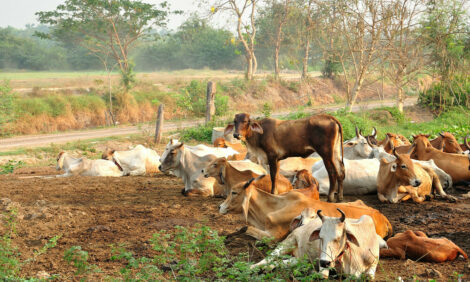



Disruptions in Food Marketing Patterns Possible
CANADA - The U.S. based Food Marketing Institute warns short term disruptions in traditional food marketing patterns are possible as a result of the introduction of Mandatory Country of Origin Labelling, writes Bruce Cochrane.  Farm-Scape is sponsored by
Manitoba Pork Council and Sask Pork FarmScape is a Wonderworks Canada production and is distributed courtesy of Manitoba Pork Council and Sask Pork. |
Effective September 30 Mandatory Country of Origin Labelling will be extended to include muscle cuts and ground beef, veal, lamb, chicken, goat, and pork; perishable agricultural commodities, including fresh and frozen fruits and vegetables; macadamia nuts; pecans; ginseng; and peanuts.
The Food Marketing Institute represents about 15 hundred food retailers and wholesalers in the U.S. and around the world.
Chief legal officer Deborah White says the main concern has been getting clear direction from the U.S. Department of Agriculture on what is expected of retailers and their suppliers and FMI is working with the agency on interpreting key provisions.
Deborah White-Food Marketing Institute
Until we get clear interpretations from USDA on some of the really key regulatory elements it's difficult to tell what the commercial implication will be specifically but I don't think you can rule out that there will be some disruptions possible, at least in the short term, in terms of the supply chain at least until the market sorts itself out and reacts.
U.S. retailers are as varied as the consumer groups that they serve.
Each one is going to have to assess the regulatory impact of the new requirements and figure out how best to continue to provide high quality food products to consumers efficiently.
Some may very well decide to limit sourcing for some items such as produce or particular meat items.
Others will look at the volume of product that they are committed to providing to consumers and decide that single sourcing just isn't an option.
White insists the U.S. retail and distribution industries will do their very best to comply with the law and to serve consumers well.
She suggests, in doing, everyone in the supply chain will need to work together to ensure the law is implemented successfully both in terms of industry needs and consumer needs.
TheCattleSite News Desk


